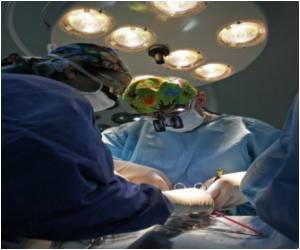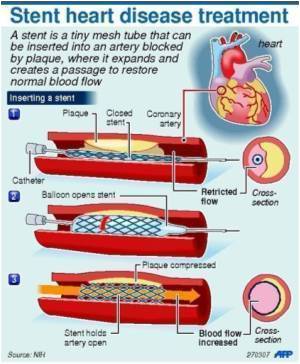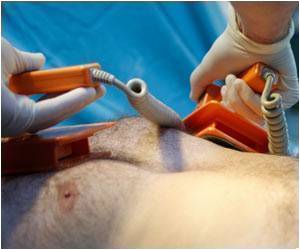New research shows that physicians do not talk to patients about the psychosocial impact and long-term risks of implanting cardioverter defibrillators (ICDs) to treat irregular heart rhythms.

The article, titled "Patient Perceptions, Physician Communication and the Implantable Cardioverter-Defibrillator," was published online in JAMA Internal Medicine (formerly Archives of Internal Medicine) on February 18.
For the study, 41 patients with ICDs and 11 cardiologists were recruited by a national marketing research company in three metropolitan areas. The patients participated in focus groups in which they described the nature of discussions they had with their doctors before the device was implanted. Multiple patients reported experiences such as depression, anxiety and changes in body image, which doctors had not mentioned.
"Getting an ICD is clearly a life-changing event for the patient," said Paul Hauptman, M.D., principal investigator of the study and professor of internal medicine at the Saint Louis University School of Medicine. "Physicians not only have to point out the benefits of this device, but also let the patients know about its risks beyond those of the implantation procedure itself."
In addition to the focus groups, Hauptman and his collaborators observed (from behind a glass mirror wall) the content and style of communication of cardiologists who met with standardized patients, individuals who are trained to act as real patients to simulate a real patient encounter.
"We were interested in how physicians communicate with patients and explain the impact of an expensive, invasive technology on quality of life," said Eric Armbrecht, Ph.D., co-principal investigator and director of consulting practice at Saint Louis University Center for Outcomes Research (SLUCOR). "This study revealed physicians talked more about the technology of the device instead of communicating the expectations patients should have from it."
Advertisement
Hauptman said that asymptomatic patients often receive ICDs as part of a primary prevention strategy, despite the potential of several post-implantation complications that include anxiety and psychosocial changes. Primary prevention strategies are for patients who have not had a sudden death event or symptoms of life-threatening arrhythmias. In secondary prevention, patients have already experienced life threatening cardiac arrhythmias and benefit more from an ICD.
Advertisement
"Seven to eight patients out of a 100 will accrue a survival benefit when the ICD is implanted for primary rather than secondary prevention. The majority will not gain a survival benefit over standard of care," Hauptman said. "Unfortunately, the screening methodology used to identify patients who are at risk of sudden death is not very good."
In the study, 80 percent of patients did not report discussing any potential long-term complications from the device with their physicians before the procedure. They also said that they were not warned about the changes they could expect in the quality of their lifestyles after implanting the device.
Multiple patient participants also experienced difficulty in performing routine physical labor and stated that they now dislike flying because of extra security screening at airports.
The study also found that most patients viewed the implantation as a cure, but soon realized that wasn’t the case.
"Patients reported that their physicians described the device as a safety net, calling it absolutely necessary. We found that many patients end up having unrealistic expectations of what the technology is going to do for them," Armbrecht said.
"For moral, ethical and economic reasons, patients need to be equipped to make informed decisions about their own health. As health care continues using more expensive, complicated and invasive technologies like ICDs, it is imperative that the health care system assures patients have all of the information they need to make a decision."
Hauptman and colleagues have previously investigated the predictors of short term mortality with ICD implants and described national trends in use of these devices in the elderly, including octogenarians.
In the current study, the researchers found that cardiologists place more emphasis on the procedure of implanting the device, which is a low-risk process by itself, than on the effects of the device on the patient’s life after implantation. They propose an initiative that would provide cardiologists with a better way to communicate with their patients.
"Physicians need tools and resources so they can counsel patients about ICDs in a more systematic, judicious and transparent manner," Armbrecht said.
"Cardiologists need to be trained in communication with patients that will promote informed decision making and preempt threats to patient quality of life," Hauptman added.
The research was funded by Joseph C. Sansone Fund in Cardiovascular Outcomes Research and the President’s Research Fund at SLU.
Established in 1836, Saint Louis University School of Medicine has the distinction of awarding the first medical degree west of the Mississippi River. The school educates physicians and biomedical scientists, conducts medical research, and provides health care on a local, national and international level. Research at the school seeks new cures and treatments in five key areas: cancer, infectious disease, liver disease, aging and brain disease and heart/lung disease.
Source-Newswise














